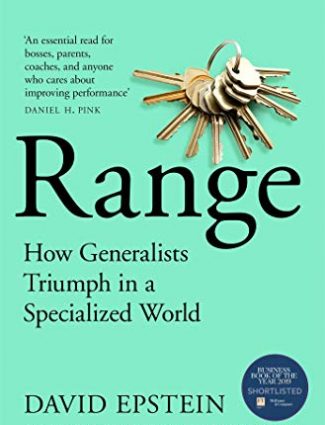David Epstein is a journalist, writer and generalist. In his book Range – why generalists triumph in a specialised world, he tries to debunk the myth that the key to a successful career is early specialisation.
Kind vs wicked
Kind learning is restricted to a small and well-defined domain, like chess. The rules are specified and the scores can be easily measured. Wicked learning relates to a discipline that is broad and it is difficult to measure the progress. There is a disadvantage in being a specialist because, with the progress of AI, the machines are better and better, yet only in narrow domains. Computers have beaten humans in the most complex games like chess and Go, but these games live within kind learning. The rules are fixed, and it is ‘easy’ for the computer to calculate best moves. However, the biggest advantage of humans is the ability to gain broad knowledge and to move ideas between different domains by using lateral thinking.
Author wants to show that early specialisation is overrated and does not always lead to best outcomes. He shows research that proves the opposite true. Although early specialisation shows a lot of examples of its efficiency in creating experts, there are also examples of people who specialised not so early and achieved greatness in their domains.
Specialisers have a head start but generalists win in the long run
The education system is biased towards learning of specialisers. The usual methods for teaching involve providing blocks of information. Whereas the science shows that the better way to learn is to interleave. This feels counterintuitive, as most people, and probably teachers as well, would group learning materials in blocks. But apparently the learning process is more effective when we take advantage of interleaving the material. This feels harder to do, but this is exactly what one should seek. The desirable difficulty that the interleaving is bringing causes frustration, and this seems to be one factor that initiates neuroplasticity (i.e. learning).
Test and learn vs plan and implement
The study of Herminia Ibarra has shed more light on career switching. The career advice is usually to see the clear picture of the future and progress towards it. But this is a mistake. We learn who we are in practice and not in theory, which is why the more preferred option is to act and work forward from promising situations.
Author introduces us to the research by Angela Duckworth and the term coined by her – grit. Grit combines passion and perseverance. The situations where people are grittier might be indicators of the direction where they should be heading.

